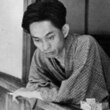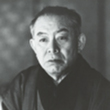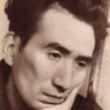The frolic of the beasts
Description
More Details
Excerpt
Similar Titles From NoveList
Similar Authors From NoveList
Published Reviews
Publisher's Weekly Review
Originally published in 1961, this luridly propulsive novel from Mishima (Confessions of a Mask) centers on a depraved love triangle between "a miserable, despairing woman"; "a self-indulgent, heartless husband"; and "a hot-blooded sympathetic young man." University student Koji takes a job at a shop selling Western ceramics and learns that his new boss, Ippei-a "worthless, boring, well-to-do playboy"-has been cheating on his wife, Yuko. As Koji begins to fall for Yuko, she reveals to him that she has been tracking Ippei's infidelity. One night, the two barge in on Ippei during a tryst and, in a fit of rage, Koji crushes Ippei's head with a wrench. The shocking act lands him in prison for nearly two years and leaves Ippei paralyzed on his right side. After Koji is released, Yuko becomes his guarantor and Koji begins to work in the greenhouse she has established in the coastal town of Iro. What follows is an ominous reunion that slowly builds to more violence, with Mishima's baroque, beautiful prose hinting at depravity on every page: "the light streaming down through that window was divine favor, truly pure; dismembered, like the white body of a slain infant." This disturbing book is a masterful look into the "very instant when the truth of perverse human nature begins to shine." (Nov.) © Copyright PWxyz, LLC. All rights reserved.
Library Journal Reviews
Originally published in 1961 and translated into English for the first time, this brief but potent novel by Japanese master Mishima features a love story among former university student Koji, literary critic Ippei Kusakado, and Ippei's mysterious wife. The publisher has had great success with its Mishima backlist.
Copyright 2018 Library Journal.Publishers Weekly Reviews
Originally published in 1961, this luridly propulsive novel from Mishima (Confessions of a Mask) centers on a depraved love triangle between "a miserable, despairing woman"; "a self-indulgent, heartless husband"; and "a hot-blooded sympathetic young man." University student Koji takes a job at a shop selling Western ceramics and learns that his new boss, Ippei—a "worthless, boring, well-to-do playboy"—has been cheating on his wife, Yuko. As Koji begins to fall for Yuko, she reveals to him that she has been tracking Ippei's infidelity. One night, the two barge in on Ippei during a tryst and, in a fit of rage, Koji crushes Ippei's head with a wrench. The shocking act lands him in prison for nearly two years and leaves Ippei paralyzed on his right side. After Koji is released, Yuko becomes his guarantor and Koji begins to work in the greenhouse she has established in the coastal town of Iro. What follows is an ominous reunion that slowly builds to more violence, with Mishima's baroque, beautiful prose hinting at depravity on every page: "the light streaming down through that window was divine favor, truly pure; dismembered, like the white body of a slain infant." This disturbing book is a masterful look into the "very instant when the truth of perverse human nature begins to shine." (Nov.)
Copyright 2018 Publishers Weekly.































